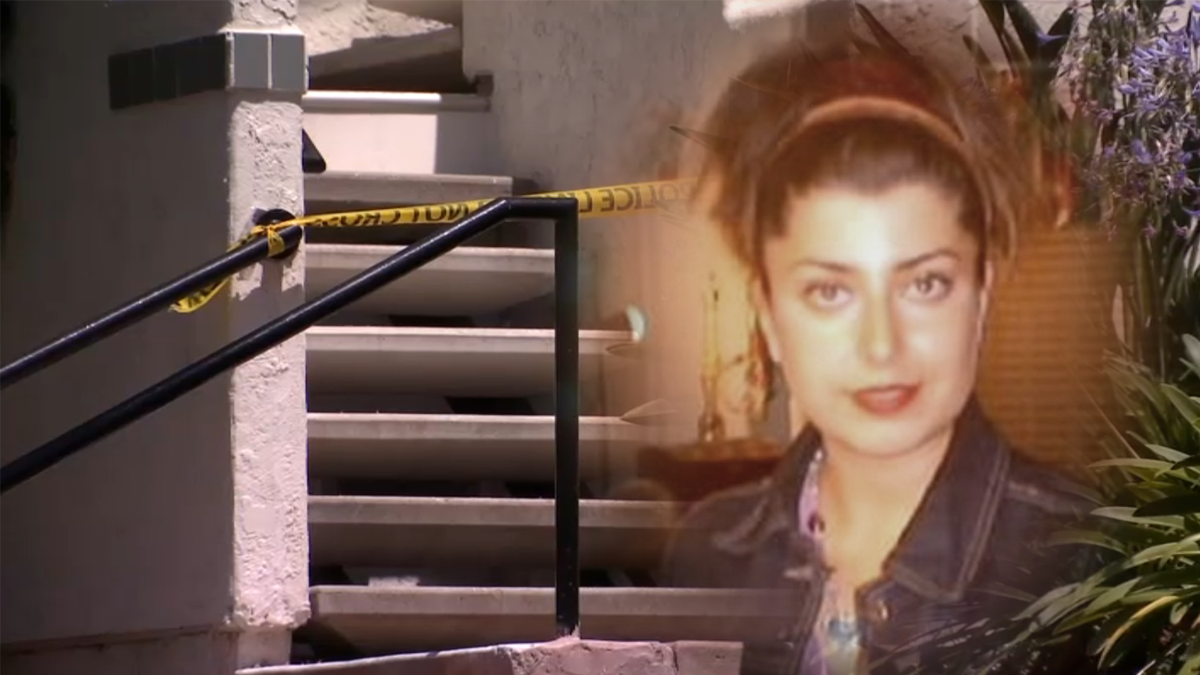Memories are all that’s left for the family of Connie Dadkhah. Loved ones like her cousin Sara Dadkhah try to remember her during the best of times.
“I remember she was obsessed with the show 'Friends,' ” Sara said.
Raised in Iran, Connie moved to Rancho Peñasquitos when Sara was in middle school. Sara remembers her as the cool, slightly older cousin who used to let Sara and her brother watch R-rated movies when she babysat. As adults, they loved grabbing a coffee together.
“That actually all feels like such a long time ago now,” Sara said.
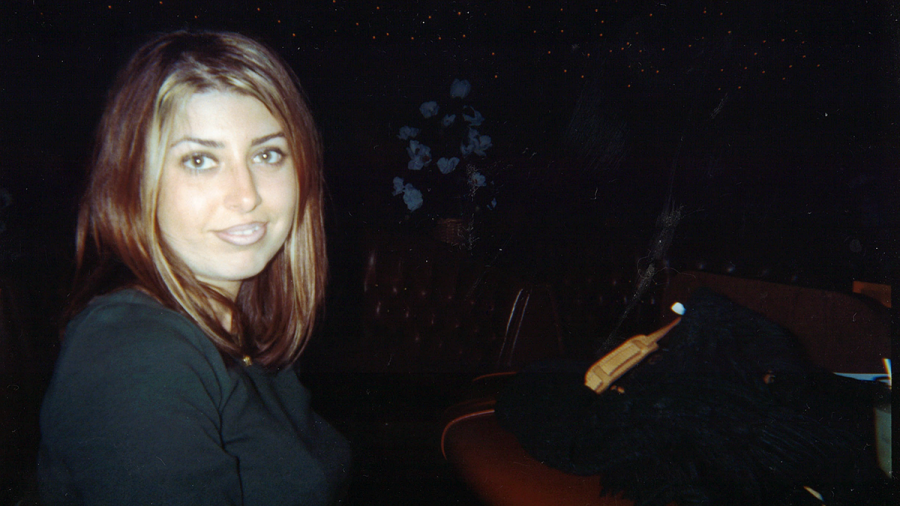
Today, it’s more difficult for Sara to keep memories light. Instead, she remembers how she learned of Connie’s death. Sara’s mother broke the news.
“Right away, from the tone of her voice, you could tell that something was terribly, terribly off,” Sara said.
On a Tuesday night in June two years ago, prosecutors say a man Connie knew scaled a wall to her second-story condo, smashed her sliding glass door, beat her to death and stayed the night. The next morning, he asked Connie’s neighbor to call 911. Officers arrested him on the spot.
Speaking out publicly for the first time
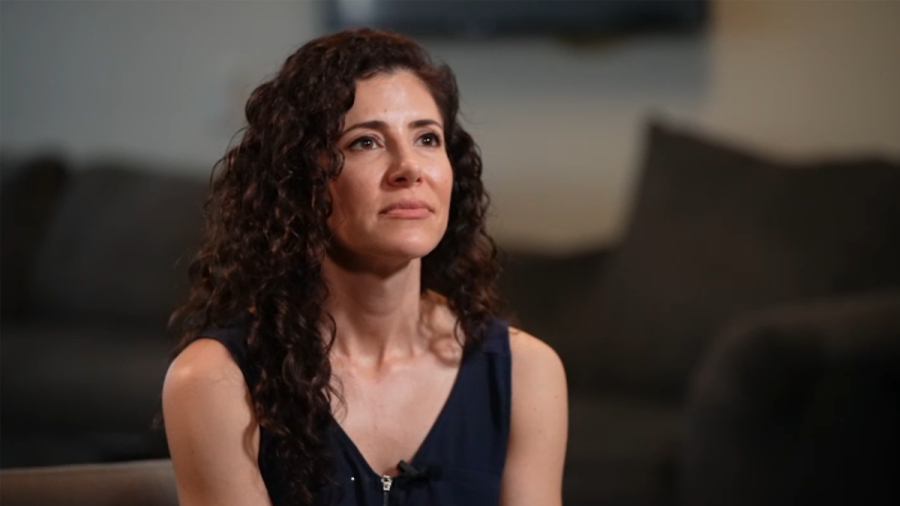
The details Sara learned next would be ones that no one in the Dadkhah family has talked publicly about, until now. They’re details that Sara wishes she never knew, like the state of Connie’s condo.
“It was a bloodbath,” Sara said. “I mean, it was definitely a crime scene. You could see blood splattered all over. The family was in there with bloodstains everywhere, and, clearly a fight had taken place there.”
Connie’s father insisted on cleaning up the condo himself, something Sara wishes they could take back. It’s a sight Sara said her family will never really recover from.
“There was something very violent and deliberate that took place,” Sara said.
The police officers who first saw Connie dead found her lying face-up on her living room couch, according to a court motion to consolidate several felony charges against the suspect. In addition to observing bruising and dried blood on Connie’s face and body, the officers reported seeing blood throughout her condo – including on her couch, the wall, a pillowcase and blood spatter on a painting hanging near Connie’s head. Officers also observed blood beyond the living room – on her bathroom door, the hallway and inside the bathroom, on the counter and cabinets, and outside the bathtub and toilet.
Chambers faces felony charges in the case, including first-degree murder. He has pleaded not guilty and is still awaiting trial.
Officers also reported blood on the suspect himself, Parrish Chambers Jr. They observed blood on his right hand and elsewhere on his body, as well as on his boots and a white T-shirt draped over his right shoulder.
It’s enough to send any family reeling, Sara said.
Scrutiny over the police response
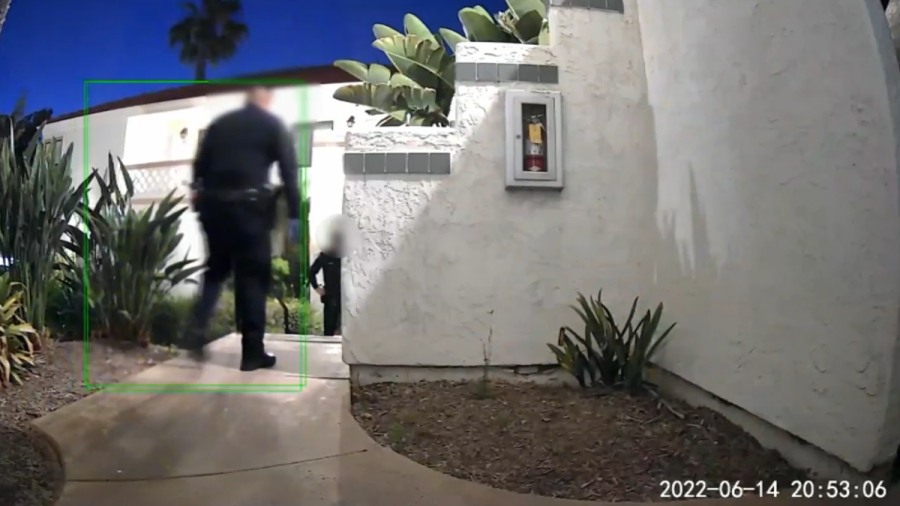
Not long after the killing, the family learned the 911 call made that morning wasn't the first.
One month after her death, an NBC 7 investigation revealed that Connie’s neighbors called police more than 10 times to report the break-in, telling dispatchers they feared for her life.
“It felt awful,” one neighbor told NBC 7. “I was on the phone with the police. They were not showing up. I was literally hiding in a closet panicking for her safety as well as my own safety.”
Police dispatch records, surveillance video and other interviews with neighbors helped create a timeline that showed the calls for help began 12 hours before police found Connie’s body.
“I’m grateful to you and Channel 7 for doing this hard work, because it’s actually through your work that we learned a lot of it that we wouldn’t have known ourselves as the family,” Sara said.
Despite the calls, it took officers nearly two hours to arrive. And once they did, surveillance video shows, officers ultimately walked away when Connie didn’t answer the door.
“The million dollar question is why no one chose to force entry into the apartment or to at least try,” Sara said. “I would have.”
San Diego police conducted an internal review of their response the night of Connie’s murder. Sara said SDPD told her they finished that review but won’t share the findings.
“It almost feels absurd that we’re about two years out, but we are still completely in the dark about a lot of the decisions that were made that day,’ Sara said.
A real conversation could have prevented a lawsuit, said Sara.
“I would love a conversation with someone who knows what happened,” Sara said.
“At this point, it feels really wrong,” Sara told us. “I’m being told that it’s not a policy to share this information with the public. I think this is a public agency and there needs to be at least a reasonable amount of transparency with the public.”
Family files lawsuit over Connie’s death
The family is suing the city of San Diego, SDPD and Chief David Nisleit. The are accusing the police of failing to prevent Connie’s murder, saying their inaction increased the danger to Connie.
“The fact that we’ve been getting nothing but silence sends the message that we’re supposed to sweep this under the rug or just move on, business as usual,” Sara told NBC 7. “And that feels wrong for so many reasons.”
In the only interview police have given on Connie’s case, a homicide lieutenant said the reason officers didn’t force their way inside Connie’s apartment is because they thought the murder suspect might have lived there and locked himself out.
“There was a reasonable interpretation that this man lived there,” Lt. Steven Sheblosk said in August 2022.
Shebloski described a confidential police record known as a Prior Activity Code (PAC) file, which gives responding officers a history or notes about the address they are being dispatched to. He said that file indicated that Chambers had been contacted there before.
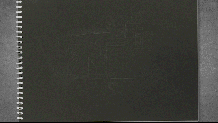
NBC 7 Investigates later learned there were at least two previous violent encounters between Connie and her accused killer. In both cases, San Diego police officers showed up. Prosecutors have since tacked both on to the murder case.
There was also a probation order tied to another crime where a judge demanded Chambers stay away from Connie. Yet SDPD has never said whether the officers who responded on the night of the break-in knew any of that information.
“That's a nightmare,” Sara said. “I mean, that’s worse than nothing.”
Forcing entry into a home, or deciding not to, can be one of the most difficult choices officers make, added Shebloski during that July 2022 interview.
“Ultimately, officers were not able to make contact with anyone, not able to verify a disturbance was occurring while they were there,” Shebloski said. “They didn’t hear anything. They have to make a decision at the moment: Are we going to force our way inside and confront someone who potentially locked themselves out and is in there alone?”
But the apparent pattern of violent encounters should have outweighed that concern, said Sara, who believes one of two things must be true: Either someone made a mistake, or there’s a problem with how officers in the field get information.
“The big question is: Could my cousin have been saved?” Sarah asked.
As angry as Connie’s family is with SDPD, they made a point to commend the hard work done by homicide detectives and prosecutors on the criminal case against Chambers.
As for the civil lawsuit, Sara said her family is not looking for any money. If they receive any monetary damages, she said they will donate it to a charity in Connie’s name.
NBC 7 Investigates reached out to SDPD to give them a chance to respond to the Dadkhah family’s statements. We are still waiting for their reply. However, it’s common for government agencies not to comment if there’s an on-going criminal case or civil lawsuit.
Possible delays with the criminal case
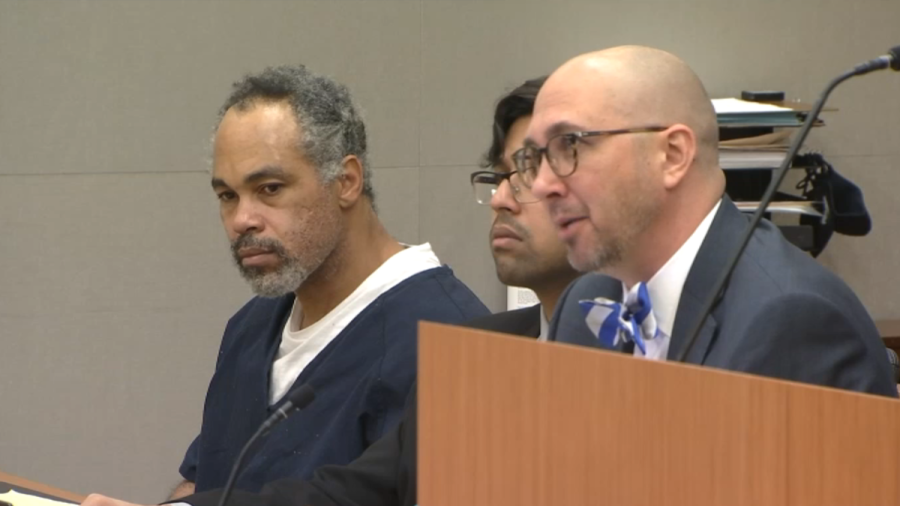
The trial for Chambers is slated to begin in July, but that could be pushed back yet again due to a new legal filing from his public defender.
That motion, under California’s Racial Justice Act, allows the court to dismiss cases if any racial bias was exercised during an interaction with law enforcement or prosecutors. Chamber’s public defender contends that his client was prepared to accept a plea deal of 17 years in prison for voluntary manslaughter, an acceptance of responsibility for her death and two strikes on his record. The filing said that offer was rejected by the district attorney’s office.
The attorney’s motion highlights another case from 2023, where a plea deal was accepted for that sentence for a sexually violent killing. He argued that case is more egregious than Chambers’, yet the DA accepted the settlement of a White man, and “may have exhibited racial bias or animus by failing to accept the settlement of a Black man.”
Chambers is Black.
Sara told us the family was made aware of the possibility of the plea deal. She said they told the DA they would prefer to see the case go to trial.
“The DA did raise with us that there was a plea deal,” Sara said. “We just didn’t see a reason to take it and expressed that to the District Attorney’s Office.”
That said, the family said they understand and respect the defense’s motion alleging bias on behalf of the DA.
Should a judge rule in favor of Chambers in the RJA motion, he could potentially be absolved of the murder charge against him.


